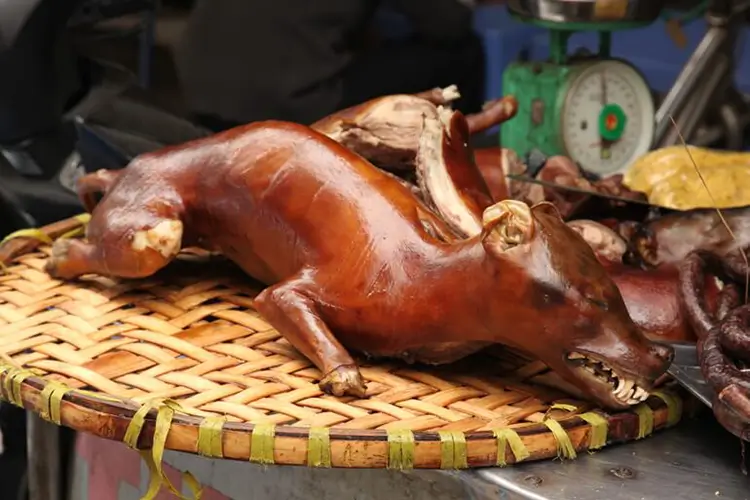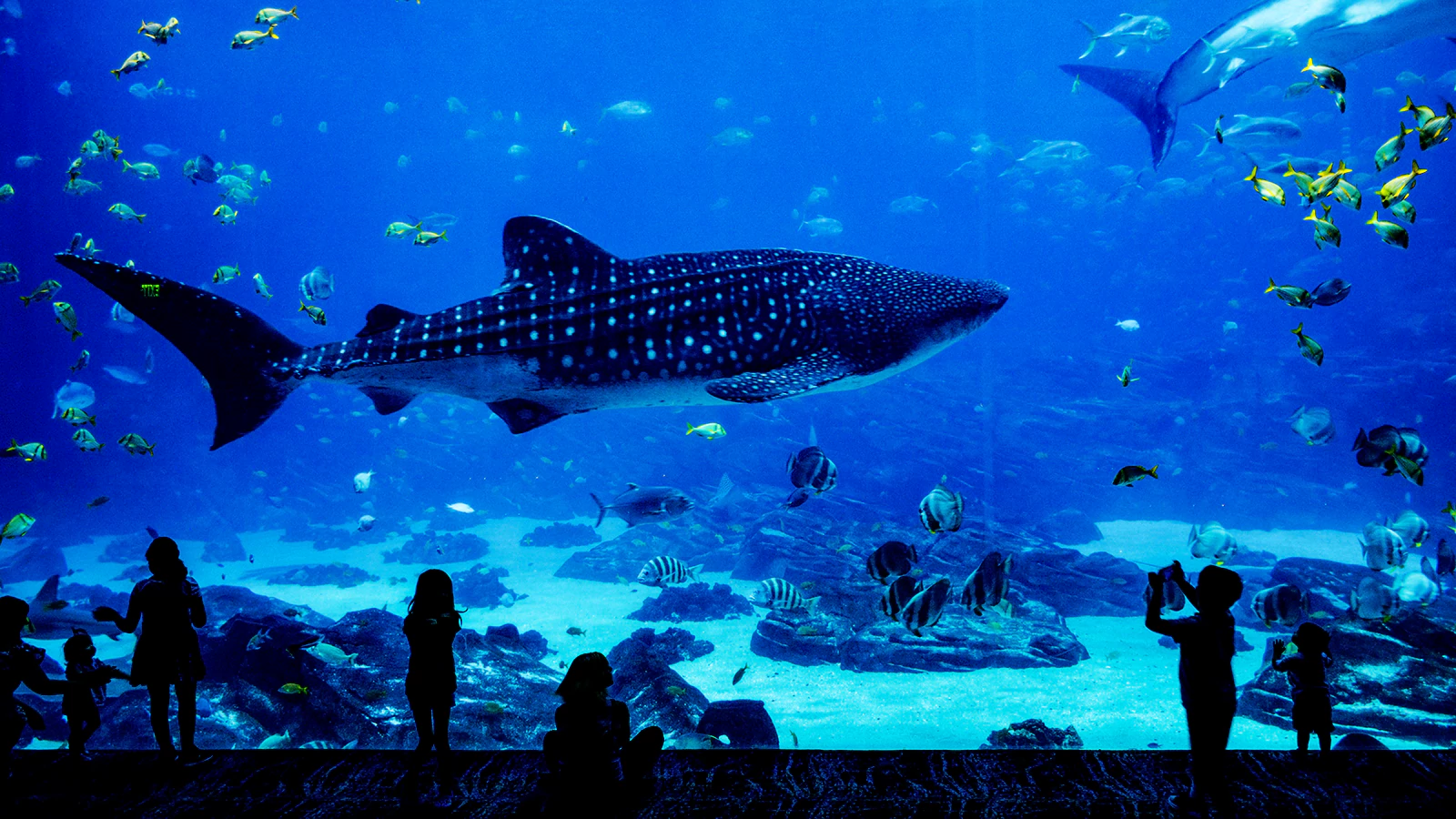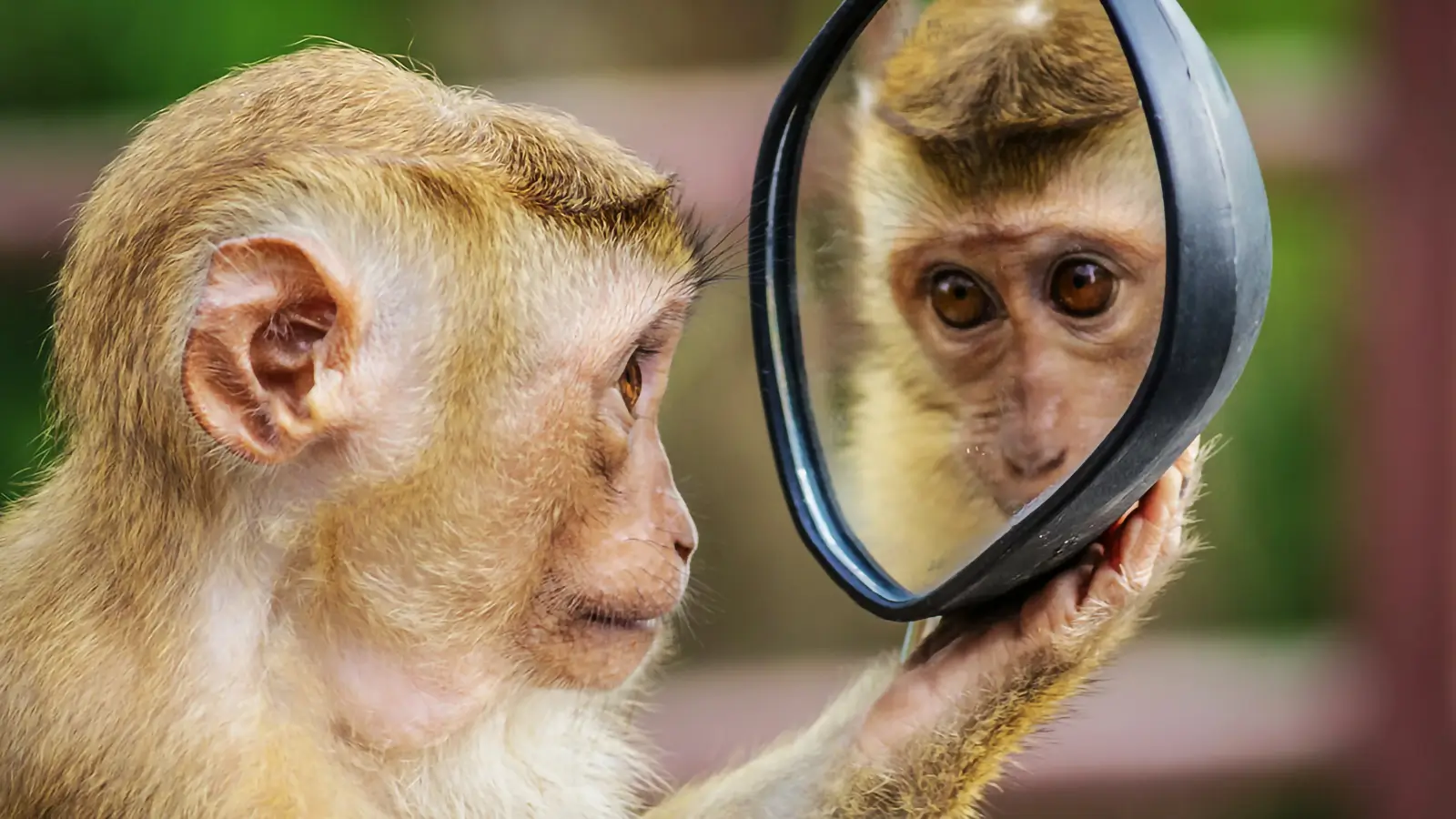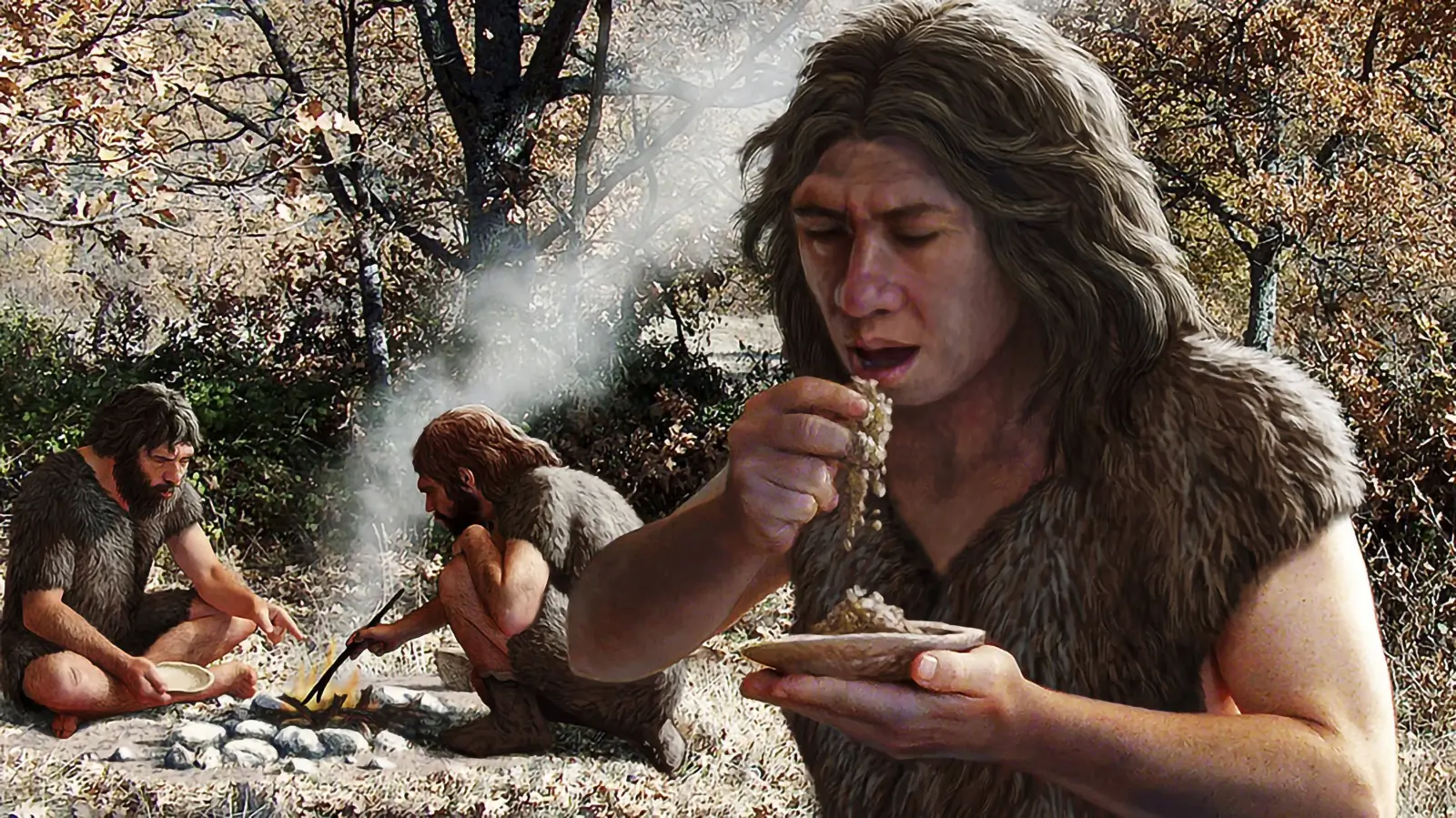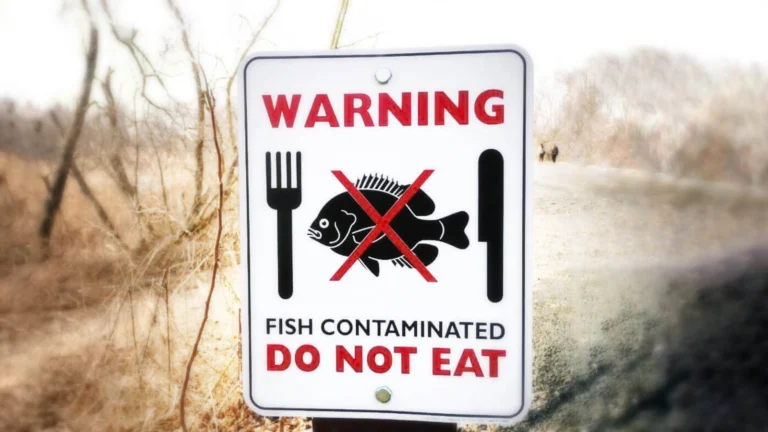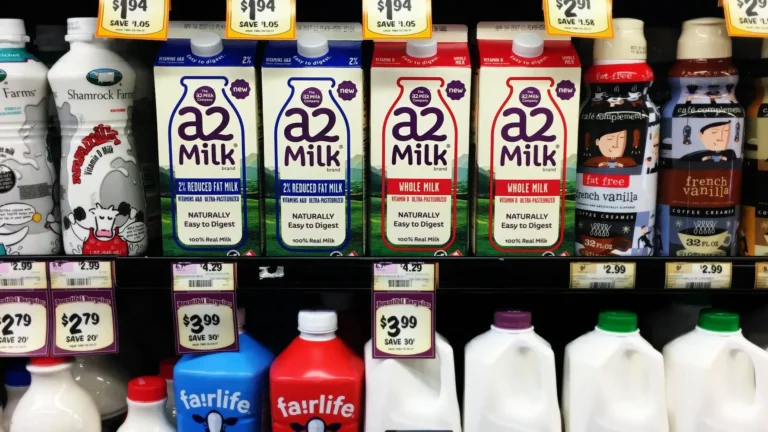Carnism- The psychology of meat consumption
Meat-eating or Carnism is the culture that is learned. Carnivores would eat any meat no matter what it is. We would only eat a few animals that we deem as food.
Milos Pokimica
Written By: Milos Pokimica
Medically Reviewed by: Dr. Xiùying Wáng, M.D.
Updated May 7, 2023Carnism is a word that Melanie Joy, Ph.D. used to define the value system and norms that define the dominant meat-eating culture. Meat-eating or Carnism is the culture that is learned.
Actual carnivores would eat any meat no matter what it is. In our system, we would eat only a few animals that we deem as food. For example, would you eat your dog? The average intelligence of the pig is at the level of a 3-year-old child, and the pig is more intelligent than a dog. A pig is a very smart animal. Do we think that dog meat does not have a good taste? In China, for example, they do eat dogs.
So why don’t we eat them? Why not human meat? Do we think that human meat does not have good taste? In the words of Alexander Pearce, an Irish convict notorious for cannibalizing his fellow prison escapees:
“Man’s flesh is delicious, it tastes far better than fish or pork.”
Alternatively, how about this:
“It was like good, fully developed veal, not young, but not yet beef. It was very definitely like that, and it was not like any other meat I had ever tasted… It was mild, good meat with no other sharply defined or highly characteristic taste such as for instance, goat, high game, and pork have.”
– William Seabrook, an explorer who ate a human rump steak on a trip to West Africa.
In more recent times science presenter Greg Foot was trying to get to the secret of what human flesh tastes like in an experiment with BritLab for the BBC. Unfortunately, it is illegal to eat our own flesh. Having the understanding that it is illegal the entire end goal was to experience some resemblance of the taste. They performed a biopsy of Greg’s leg muscle and settled for the aroma of his cooked flesh. The aroma of the flesh can account for up to 80 percent of our sensation of taste. They put the cooked human meat in an aroma analyzing machine and did the smell test. In Greg’s words, his leg muscle smelled like beef stew. Analysis of the leg muscle showed that it is very similar in composition to both chicken and beef. It is about half of the muscle we found in chicken breast and has similar muscle fiber we found in cuts of beef. In the end, they created a ground meat mixture of different animal meets to recreate the fibers they found in the biopsy of his leg and made a fake human burger.
Cannibalism is thoroughly documented around the world, from Amazon Basin to the Congo, Fiji, and the Maori people of New Zealand. It is not a modern invention, and in some cultures, it is normal. There is ceremonial ritual cannibalism also. In the modern world, it was still practiced in Papua New Guinea as of 2018 in ceremonial rituals and war ceremonies in various Melanesian tribes. Neanderthals are believed to have practiced cannibalism. Anatomically modern humans may have also eaten Neanderthals.
On smaller farms, slaughter is always done with bare hands without anesthesia. Same with any other animal. Male chicks do not lay eggs and don’t grow quickly enough so after hatching they are selected and put into a grinding machine while still alive. Females are sent to a hot blade to remove part of the chick’s beaks. After debeaking, birds are put into cages where they are going to spend the rest of their lives confined in tiny spaces. Because of selective breeding, they grew to be so large so quickly that many suffer crippling leg disorders and chronic joint pain. At the slaughter, plant birds are snapped upside down into moving shackles by their legs and then pulled across a blade which slices their throats.
The truth is that we do not really care or ever would. Humans have selective empathy. We may feel bad for dogs but not for pigs.
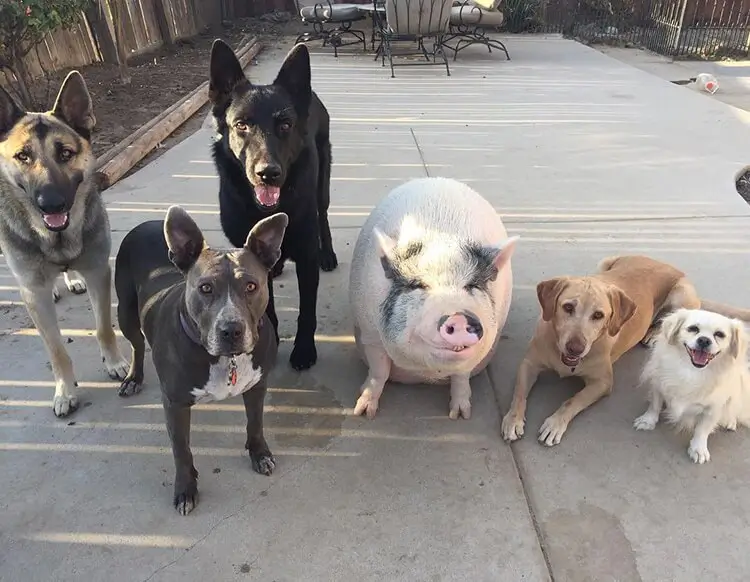
Dr. Melanie Joy calls it a gap in our consciousness, the block of awareness. A form of denial or self-defense mechanism.
She talks about three ends of justification. Eating meat is healthy, normal, and necessary.
However, what we think is normal is just the social structure of the dominant culture. For most of the time of entire human existence, slavery was normal, natural, and necessary. Even in the Christian Middle Age Europe with the inquisition, slavery was normal and natural. Slave trade was even necessary for the economy of the newly acquired territories of the new world. There are just “savages” that run naked. Well for most of human history running naked was running naturally. That is what is called selective awareness.
Clothing is a modern invention also. What is natural also represents the dominant cultural interpretation of history. Murder, rape, infanticide, abortion, and child sacrifice were all-natural for most of human history.
Patterns of behaviors are usually the same and do not change. Only selective awareness changes for justification of behavior.
In the end, just in case you may have some idea of rescuing some piglets, today it is not just breaking and entering and stealing. In 2008 the FBI wrote: “Together, eco-terrorists and animal rights extremists are one of the most serious domestic terrorism threats in the U.S. today.” The U.S. is so concerned with animal rights extremism that there is specific legislation for them: The Animal Enterprise Terrorism Act (AETA). No other terrorist act targets a specific ideology.
Many people in the vegan community believe that the treatment of animals is a social justice issue. That is exactly what for example Dr. Melanie Joy teaches in her lectures. The problem is that justice depends on our perception of norms. The more we will learn the more we understand the nature of human existence. And there is nothing evil about it. Existentialism is the force that drives all animals and evolution. Self-preservation, self-interest no matter what.
What some people from vegan communities do not understand is that selective awareness is not just a defense mechanism. It is an evolutionary instinctive subconscious self-preservation instinct.
The only reason, for example, we do not eat dogs is not because we somehow culturally learned not to, but because we had more use of them alive. It is self-interest again. We have used dogs for hunting to catch other animals, and we used them as some form of primitive alarm system. They will bark when a bear or wolf or another human or Neanderthal cross into our territory because wolfs are territorial animals and dog, is part of the human pack now.
The tendency we have to not eat cats is not that we learned it culturally. It is because they are a form of primitive pest control. Cats tend to eat rats, so we had more benefits from domesticating them instead of eating them. In time behavior merges with our culture and became integrated into social norms. The same reason we do not like pigs is that they do not bark, they do not catch rats, and they don’t do anything. We have no benefits from them, they are “stupid”, and we are going to eat them. If we try to milk them, that will not be good also because they are relatively small. Cattle, in contrast, are larger so no pig milk for us.
The only reason we even have civilization is that primitive hominids like Homo erectus had more benefits from cooperating than living as lone wolves on their own. Hominins also had communities because they benefited the individual. Even a beta male will tolerate the alpha male not because it feels good to be beaten but because it is more beneficial for him to be beta than to go lone wolf and die. Everything ever conducted by any animal including humans comes down to preservation instinct and existentialism. And then it became part of cultural norms.
References:
Passages selected from a book: Pokimica, Milos. Go Vegan? Review of Science Part 1. Kindle ed., Amazon, 2018.
Do you have any questions about nutrition and health?
I would love to hear from you and answer them in my next post. I appreciate your input and opinion and I look forward to hearing from you soon. I also invite you to follow us on Facebook, Instagram, and Pinterest for more diet, nutrition, and health content. You can leave a comment there and connect with other health enthusiasts, share your tips and experiences, and get support and encouragement from our team and community.
I hope that this post was informative and enjoyable for you and that you are prepared to apply the insights you learned. If you found this post helpful, please share it with your friends and family who might also benefit from it. You never know who might need some guidance and support on their health journey.
– You Might Also Like –

Learn About Nutrition
Milos Pokimica is a doctor of natural medicine, clinical nutritionist, medical health and nutrition writer, and nutritional science advisor. Author of the book series Go Vegan? Review of Science, he also operates the natural health website GoVeganWay.com
Medical Disclaimer
GoVeganWay.com brings you reviews of the latest nutrition and health-related research. The information provided represents the personal opinion of the author and is not intended nor implied to be a substitute for professional medical advice, diagnosis, or treatment. The information provided is for informational purposes only and is not intended to serve as a substitute for the consultation, diagnosis, and/or medical treatment of a qualified physician or healthcare provider.NEVER DISREGARD PROFESSIONAL MEDICAL ADVICE OR DELAY SEEKING MEDICAL TREATMENT BECAUSE OF SOMETHING YOU HAVE READ ON OR ACCESSED THROUGH GoVeganWay.com
NEVER APPLY ANY LIFESTYLE CHANGES OR ANY CHANGES AT ALL AS A CONSEQUENCE OF SOMETHING YOU HAVE READ IN GoVeganWay.com BEFORE CONSULTING LICENCED MEDICAL PRACTITIONER.
In the event of a medical emergency, call a doctor or 911 immediately. GoVeganWay.com does not recommend or endorse any specific groups, organizations, tests, physicians, products, procedures, opinions, or other information that may be mentioned inside.
Editor Picks –
Milos Pokimica is a health and nutrition writer and nutritional science advisor. Author of the book series Go Vegan? Review of Science, he also operates the natural health website GoVeganWay.com
Latest Articles –
Top Health News — ScienceDaily
- The overlooked nutrition risk of Ozempic and Wegovyon February 4, 2026
Popular weight-loss drugs like Ozempic and Wegovy can dramatically curb appetite, but experts warn many users are flying blind when it comes to nutrition. New research suggests people taking these medications may not be getting enough guidance on protein, vitamins, and overall diet quality, increasing the risk of muscle loss and nutrient deficiencies.
- A 25-year study found an unexpected link between cheese and dementiaon February 4, 2026
A massive Swedish study tracking nearly 28,000 people for 25 years found an unexpected link between full-fat dairy and brain health. Among adults without a genetic risk for Alzheimer’s, eating more full-fat cheese was associated with a noticeably lower risk of developing the disease, while higher cream intake was tied to reduced dementia risk overall. The findings challenge decades of low-fat dietary advice but come with important caveats.
- MIT’s new brain tool could finally explain consciousnesson February 4, 2026
Scientists still don’t know how the brain turns physical activity into thoughts, feelings, and awareness—but a powerful new tool may help crack the mystery. Researchers at MIT are exploring transcranial focused ultrasound, a noninvasive technology that can precisely stimulate deep regions of the brain that were previously off-limits. In a new “roadmap” paper, they explain how this method could finally let scientists test cause-and-effect in consciousness research, not just observe […]
- Why heart disease risk in type 2 diabetes looks different for men and womenon February 4, 2026
Scientists are digging into why heart disease risk in type 2 diabetes differs between men and women—and sex hormones may be part of the story. In a large Johns Hopkins study, men with higher testosterone had lower heart disease risk, while rising estradiol levels were linked to higher risk. These hormone effects were not seen in women. The results point toward more personalized approaches to heart disease prevention in diabetes.
- Sound machines might be making your sleep worseon February 4, 2026
Sound machines may not be the sleep saviors many believe. Researchers found that pink noise significantly reduced REM sleep, while simple earplugs did a better job protecting deep, restorative sleep from traffic noise. When pink noise was combined with outside noise, sleep quality dropped even further. The results suggest that popular “sleep sounds” could be doing more harm than good—particularly for kids.
- This unexpected plant discovery could change how drugs are madeon February 3, 2026
Plants make chemical weapons to protect themselves, and many of these compounds have become vital to human medicine. Researchers found that one powerful plant chemical is produced using a gene that looks surprisingly bacterial. This suggests plants reuse microbial tools to invent new chemistry. The insight could help scientists discover new drugs and produce them more sustainably.
- A hidden cellular process may drive aging and diseaseon February 3, 2026
As we age, our cells don’t just wear down—they reorganize. Researchers found that cells actively remodel a key structure called the endoplasmic reticulum, reducing protein-producing regions while preserving fat-related ones. This process, driven by ER-phagy, is tied to lifespan and healthy aging. Because these changes happen early, they could help trigger later disease—or offer a chance to stop it.
PubMed, #vegan-diet –
- Diet type and the oral microbiomeon February 2, 2026
CONCLUSION: The diet-oral microbiome-systemic inflammation axis is bidirectional and clinically relevant. Understanding both direct ecological regulation and indirect metabolic effects is essential to support precision nutrition strategies aimed at maintaining oral microbial balance and systemic inflammatory risk mitigation.
- Consensus document on healthy lifestyleson January 22, 2026
Proteins are a group of macronutrients that are vital to our lives, as they perform various functions, including structural, defensive and catalytic. An intake of 1.0-1.2 g/kg/body weight per day would be sufficient to meet our needs. Carbohydrate requirements constitute 50 % of the total caloric value and should be obtained mainly in the form of complex carbohydrates. In addition, a daily intake of both soluble and insoluble fiber is necessary. Regular consumption of extra virgin olive oil […]
- Vitamin B12 and D status in long-term vegetarians: Impact of diet duration and subtypes in Beijing, Chinaon January 21, 2026
CONCLUSIONS: This study reveals a dual challenge among Beijing long-term vegetarians: vitamin B12 deficiency was strongly associated with the degree of exclusion of animal products from the diet (veganism), while vitamin D deficiency was highly prevalent and worsened with longer diet duration. The near-universal vitamin D deficiency observed in this study suggests that, in the Beijing context, the risk may extend beyond dietary choice, potentially reflecting regional environmental factors;…
- Nutritional evaluation of duty meals provided to riot police forces in Germanyon January 13, 2026
Background: The primary role of the German riot police is maintaining internal security. Due to challenging working conditions, riot police forces face an elevated risk of various diseases. During duty, forces are provided with meals. A balanced diet can reduce the risk of some of these diseases and contribute to health-promoting working conditions. Aim: First evaluation of the nutritional quality of duty meals in Germany based on German Nutrition Society recommendations (DGE). Methods: In…
- Iodineon January 1, 2006
Iodine is an essential trace nutrient for all infants that is a normal component of breastmilk. Infant requirements are estimated to be 15 mcg/kg daily in full-term infants and 30 mcg/kg daily in preterm infants.[1] Breastmilk iodine concentration correlates well with maternal urinary iodine concentration and may be a useful index of iodine sufficiency in infants under 2 years of age, but there is no clear agreement on a value that indicates iodine sufficiency, and may not correlate with […]
Random Posts –
Featured Posts –
Latest from PubMed, #plant-based diet –
- From paddy soil to dining table: biological biofortification of rice with zincby Lei Huang on February 4, 2026
One-third of paddy soils are globally deficient in zinc (Zn) and 40% of Zn loss in the procession from brown rice to polished rice, which results in the global issue of hidden hunger, e.g., the micronutrient deficiencies in the rice-based population of developing countries. In the recent decades, biofortification of cereal food crops with Zn has emerged as a promising solution. Herein, we comprehensively reviewed the entire process of Zn in paddy soil to human diet, including the regulatory…
- Molecular Characterization of Tobacco Necrosis Virus A Variants Identified in Sugarbeet Rootsby Alyssa Flobinus on February 3, 2026
Sugarbeet provides an important source of sucrose; a stable, environmentally safe, and low-cost staple in the human diet. Viral diseases arising in sugarbeet ultimately impact sugar content, which translates to financial losses for growers. To manage diseases and prevent such losses from occurring, it is essential to characterize viruses responsible for disease. Recently, our laboratory identified a tobacco necrosis virus A variant named Beta vulgaris alphanecrovirus 1 (BvANV-1) in sugarbeet…
- Nutrition in early life interacts with genetic risk to influence preadult behaviour in the Raine Studyby Lars Meinertz Byg on February 3, 2026
CONCLUSIONS: Nutrition in early life and psychiatric genetic risk may interact to determine lasting child behaviour. Contrary to our hypothesis, we find dietary benefits in individuals with lower ADHD PGS, necessitating replication. We also highlight the possibility of including genetics in early nutrition intervention trials for causal inference.
- Effect of the gut microbiota on insect reproduction: mechanisms and biotechnological prospectsby Dilawar Abbas on February 2, 2026
The insect gut microbiota functions as a multifunctional symbiotic system that plays a central role in host reproduction. Through the production of bioactive metabolites, gut microbes interact with host hormonal pathways, immune signaling, and molecular regulatory networks, thereby shaping reproductive physiology and fitness. This review summarizes recent advances in understanding how gut microbiota regulate insect reproduction. Accumulating evidence demonstrates that microbial metabolites…
- Rationale and design of a parallel randomised trial of a plant-based intensive lifestyle intervention for diabetes remission: The REmission of diabetes using a PlAnt-based weight loss InteRvention…by Brighid McKay on February 2, 2026
CONCLUSIONS: This trial will provide high-quality clinical evidence on the use of plant-based ILIs to address the epidemics of obesity and diabetes to inform public health policies and programs in Canada and beyond.
- Diet type and the oral microbiomeby Daniel Betancur on February 2, 2026
CONCLUSION: The diet-oral microbiome-systemic inflammation axis is bidirectional and clinically relevant. Understanding both direct ecological regulation and indirect metabolic effects is essential to support precision nutrition strategies aimed at maintaining oral microbial balance and systemic inflammatory risk mitigation.
